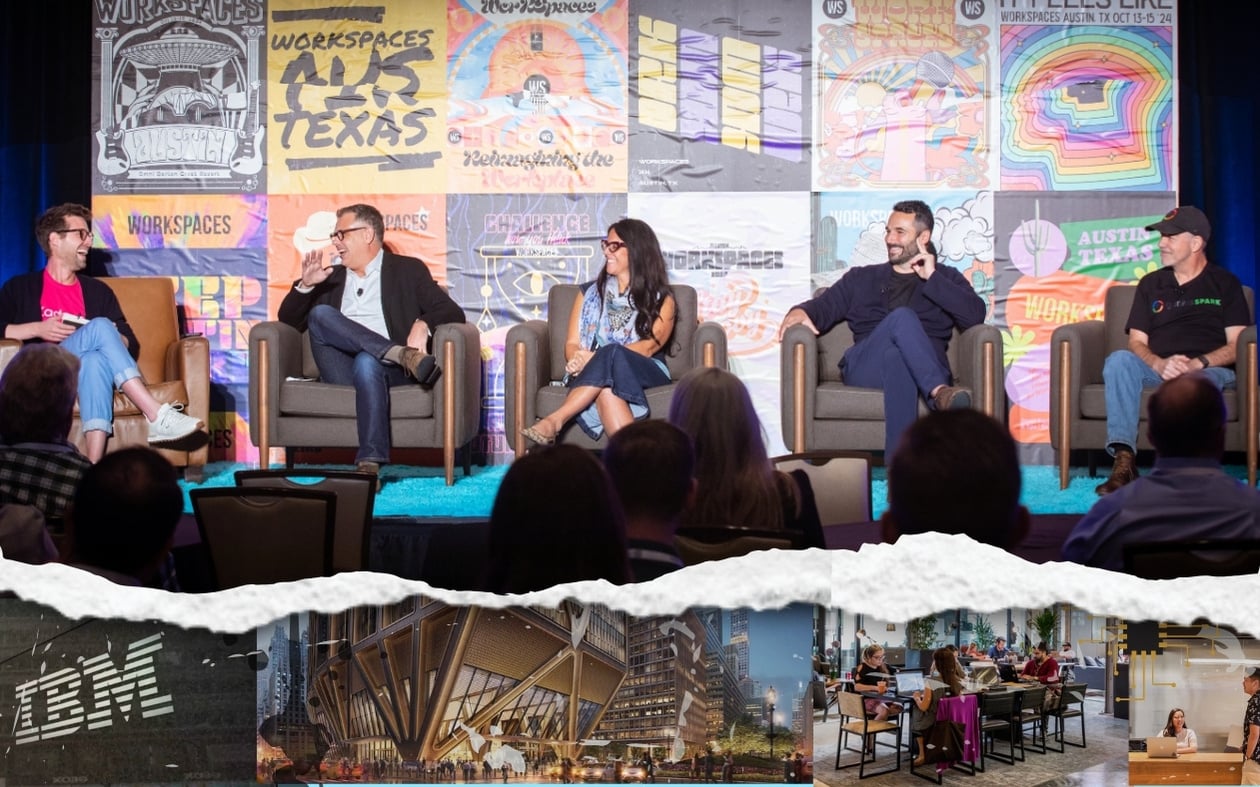
The modern workplace is riddled with contradictions: meeting rooms are buzzing while desks collect dust, traditional office culture butts heads with hybrid realities, and lofty corporate environmental goals often fall short of real impact. At WorkSpaces, a powerhouse panel of corporate real estate and workplace leaders took on these challenges head-on, sharing candid insights into how major organizations are truly navigating the future of work.
The discussion brought together Frederico Egli (Head of Real Estate, US – IBM), Marisa Galioto (COO – Global Real Estate, JPMorgan Chase), Jamie Hodari (Co-Founder & CEO – Industrious), and Rex Miller (Founder – MindShift), moderated by Future of Work Strategist Dave Cairns of Kadence.
IBM has observed a clear pattern in how their offices are being used. "If you look at our offices right now, workstations are empty, meeting rooms are full," shared Frederico Egli. This insight is driving them to rethink office design, focusing on creating spaces that support collaboration rather than individual work.
While many companies struggle to bring people back to offices, JPMorgan Chase tells a different story. "Our utilization rates are pretty high," noted Marisa Galioto. Their success comes from recognizing that different employee groups have distinct needs. They've responded by creating an employee experience organization dedicated to designing spaces that accommodate these varied work styles.
The panel emphasized that workplace strategy needs to move beyond data to focus on human stories and experiences. Jamie Hodari built on this perspective by challenging traditional workplace analogies, comparing workplace communities to universities rather than families. This model acknowledges that people can feel deeply connected to an institution without daily face-to-face interaction with every colleague - much like how university students maintain strong bonds with their alma mater despite not knowing everyone on campus.
This evolution in workplace dynamics comes with its own challenges. Rex Miller shared research showing a 40% decline in empathy among college students over four decades, with an additional 20% drop during the pandemic. This has real implications for workplace collaboration. As Miller explained: "High-performing teams have to have positive conflict. The number one thing I'm usually called into for teams that can't perform is, they can't have healthy conflict."
Jamie Hodari offered a provocative perspective on workplace sustainability: "If I never recycled, left the lights on... living in a dense place like New York, my carbon footprint would still be about a quarter of what it was growing up in suburban Michigan." His point cut through the usual green office discussions - the biggest environmental impact comes from fundamental choices about density and utilization, not minor efficiency improvements.
The discussion revealed that successful organizations are moving beyond simple adjustments to pre-pandemic workplace strategies. Instead, they're fundamentally reimagining what brings people together and why.
The future belongs to organizations that can create compelling reasons for people to want to come together, rather than those simply mandating presence. As the experiences of IBM and JPMorgan Chase demonstrate, this might mean rethinking not just how we use our spaces, but how we measure their success.
Watch the full discussion below…

A One of a Kind Retreat for Hotel Development, Design & Construction Leaders.
Oct 25-27, 2026 | Fort Lauderdale, FL
Learn more
© Copyright 2025 influence group. All Rights Reserved
Comments